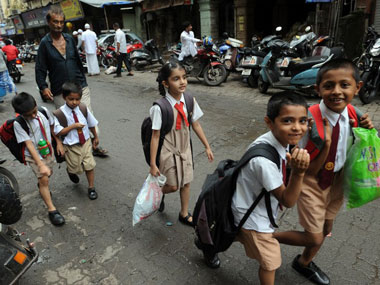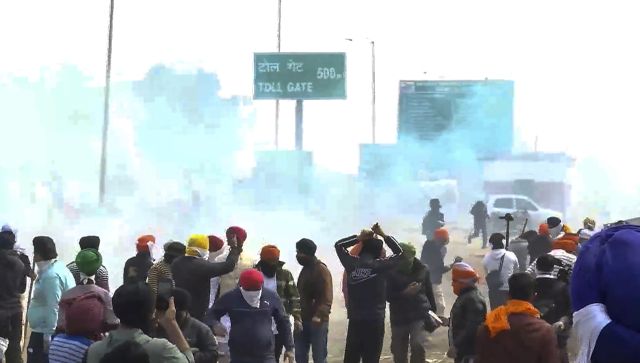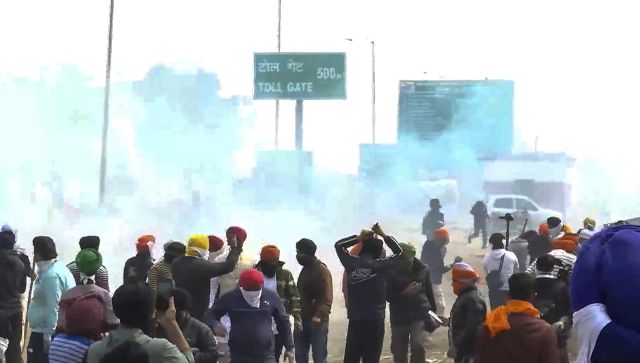Recently, a private high school in Mumbai expelled twenty students because their parents were protesting against unjustified fee hike. It was the continuation of what has become a chronic occurrence in elite private schools throughout India. We the people promised ourselves a socialist state that would ensure an affordable access to public services such as health and education. But, with aggressive mushrooming of private players there have been increasing incidents of parents’ harassment through frequent fee hike and unreasonable charges levied on school related material. Parents associations in different parts of India have been fighting a long drawn battle that doesn’t seem to have an immediate end.
Let’s have a look at some of the facts related to schools across India
1. In 2012, a Delhi High Court appointed committee indicted 64 private schools for unjustifiably hiking tuition fee and recommended that the excess amount must be refunded to parents with 9 percent interest. The panel observed that these schools have abused their leverages by capitalising on the government order (which allowed them to hike fees by up to 25 percent) for unjust enrichment, causing great prejudice to the interests of students and parents. 2. In early 2016, the Delhi government asked schools (intending to hike the fees) to get the approval for the same from the government. With initial applicants being 172, when the requirement of auditing before the approval was put forth, 28 schools withdrew their applications and of the remaining, only five were granted the hike. 3. In a recent survey, over 75 percent parents from Kerala, West Bengal, Haryana, Andhra Pradesh, Rajasthan, Uttarakhand, Jharkhand and Goa said that their child’s school increased the fee by more than 10 percent; while 15 percent of the total number of parents surveyed claimed the hike of more than 20 percent. 4. As per several recorded statements, parents are compelled to buy the shoes and bags of a particular brand, a sack-full of school stationery and overpriced notebooks and workbooks. Most of the items are sold within the school premises and if that is not the case then at the outlet of some prescribed vendor with whom the school authorities have a tie-up.
What has led to this?
The answer lies in state’s apathy towards school education and lax regulation of unaided schools. Around fifty years ago, in 1966 the Kothari Education Commission recommended allotment of 6 percent of the GDP to the education sector. Fifty years since the recommendation and sixty seven years since we adopted the constitution, the government continues allocating not more than 3.8 percent of the total GDP to the grooming of what we call the future of India. According to the data, nearly 75 percent of elementary, 43 percent of secondary and 40 percent of higher secondary schools are still government run. Most of these schools are battling with the situation of — abysmal teacher quality, poor attendance, non-existent infrastructure and rampant corruption.
The natural consequence of this has been an increase in the migration of children from public to private schools; reflecting parents’ growing distrust towards capability of public schools in delivering quality education. The data shows that between 2010 and 2014 total enrollment in government run schools fell by 1.16 crore while simultaneously increasing by 1.85 crore in private schools. We don’t know statistically, whether this migration — borne out of state’s failure to provide competent options, has made parents and children more vulnerable to exploitation by private schools, but with other available facts and situations, that certainly seems to be the case.
Role of the CBSE
As a response to the harassment by private schools, in a circular dated 19 April 2017, CBSE issued an advisory to not to indulge in commercial activities by way of selling of books, stationery, uniforms, school bag etc within the school premises or through selected vendors. CBSE Affiliation Bylaws were cited in the circular to remind the owners that schools must run as a community service and not as business enterprises. It was further emphasised that schools shall desist from compelling the children and their parents to buy textbooks other than CBSE/NCERT. A week after the CBSE circular, the Brihanmumbai Municipal Corporation (BMC) also issued a strict warning to all private and government primary schools that they cannot make it compulsory for parents to purchase any school material from them or any selected vendor.
But what is the legal effect of this CBSE directive? There is no punishment prescribed for its violation. Thus, instead of commanding any binding value the circular merely serves as a persuasive guideline. In Delhi it can be said to have become the binding law because recently on 2 May the bench comprising Acting Chief Justice Gita Mittal and Justice Anu Malhothra directed “the CBSE to ensure that its circular is strictly complied with, in accordance with law, by the institutions.” Rest of India still awaits a court ruling to enforce the circular. Perhaps, a Supreme Court verdict would do?
On fee hike, there is a terse circular of 2016, prohibiting charging of capitation fee or voluntary donations. It warns the schools of consequences as grave as disaffiliation. However, there is a loophole here as well. On overall fee hike issue the circular merely says “unaided schools should consult parents through parents’ representatives before revising the fee.” Some pertinent questions arise in this regard. What is the effective value of consultation in school’s decision making? Would it ensure that schools will take genuine concerns of parents on board? Who would qualify as parents’ representative in the places where there are no active parents associations? Can pro-management parents be appointed as parents’ representatives by the management? In case there are no clear representatives and parents and the management disagree on fee hike, would it be ensured that the children of the aggrieved parents will not be harassed? The circular is silent on this.
The TMA Pai case and the legal matrix
Under Article 19(1)(g) of the Constitution gives fundamental right to carry out any occupation, trade or business of one’s choice. However this right is not absolute. The state under Article 19(6) can make “any law imposing, in the interests of the general public, reasonable restrictions on the exercise of the right conferred.” Hence there has to be a fine balance between revenue generation and charitable nature of imparting education. The Supreme Court in TMA Pai Foundation and Ors versus State of Karnataka and Ors stated – “maximum autonomy has to be with the management with regard to administration, including the right of appointment, disciplinary powers, admission of students and the fees to be charged”. The government nevertheless can provide regulations to ensure prohibition of capitation fee and “profiteering” by educational institutions since their object is by definition – “charitable”. Therefore, they cannot charge such a fee that is not required for the fulfillment of object. The court further said that a reasonable revenue surplus may be generated but only for the purpose of development of education and expansion of the institution. The understanding of “expansion of the institution” was however not clarified.
Today, private unaided schools contend that in the times of increased costs, to develop facilities and infrastructure a fee revision is necessary. Also, after the 7th Pay Commission there is an increasing pressure to update the salary structure of teachers. It is fair enough, to allow a reasonable fee hike as per TMA Pai ruling on these grounds. In fact the 2016 circular of CBSE had already allowed the schools to commensurate fee charge with the facilities provided by the institution.
The problem arises when private schools tend to adopt an aggressive corporate model with the sheer intent of profiteering. For instance, apart from having exclusive tying agreements with the vendors regarding books, notebooks with logos, stationery, school bags and shoes the schools have also been reported to have similar agreements for uniforms which are overpriced and substandard and keep on changing frequently. Quite different from the times when parents of the eighties born child would get a little oversized dress that lasted comfortably for two years at least. It worked out completely fine and children did manage to get quality education and do exceptionally well in life.
These tying agreements, with vendors are illegal and anti-competitive. Section 3 of the Competition Act, 2002 provides that an agreement controlling the flow of goods and services in a manner that drives existing competitors out of the market would be prohibited. Section 3(4) specifically refers to vertical agreements (between enterprises at different level of business activities) and prohibits any type of tying arrangements and exclusive supply and distribution agreements. The coterie of vendors and school authorities as discussed above is a clear case of anti-competitive arrangement. Apart from constitutional remedies such as Public Interest Litigation, concerned parents can simultaneously explore the option of approaching the Competition Commission of India which has been producing excellent jurisprudence since its inception.
Education lies in the Concurrent List of the Seventh Schedule to the Constitution of India. It means both — the Centre and State government(s) have power to legislate over the issues of education. While there is no overarching law yet promulgated by the central government, very few states (such as Gujarat and Punjab) have taken the lead to deal with the issue and pass the law. Other states are also contemplating to follow the suit. It is however, always desirable to avoid any fragmentation of law on such an important issue and come up with an umbrella legislation that operates throughout India.
Before ending, it would be pertinent to remember Babasaheb Ambedkar. He was vehemently against commercialisation of education and wanted the system to be inclusive in all ways. In his words, education authorities cannot be treated on the basis of quid pro quo; rather it is something “ought to be cheapened in all possible ways to the greatest possible extent.”


)




)
)
)
)
)
)
)
)